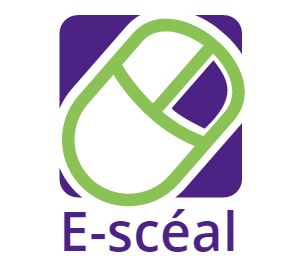Education spend lags in OECD report
- Last Updated: Wednesday, 10 September 2008 01:00
Seán Flynn and Gráinne Faller
IRELAND IS close to the bottom of the international league table on education spending relative to the country's economic wealth, according to an authoritative OECD report published today.
The report - which highlights relative underinvestment in many key education areas in the Republic - will intensify the pressure on the Government to hold off on any fresh round of education cutbacks in the forthcoming Budget.
The Education at a Glance 2008 report shows Ireland coming 27th out of 29 countries when it comes to the amount of GDP per capita invested in each second-level student. The report also shows that spending on education increased by more than 80 per cent between 1995 and 2005, but GDP more than doubled.
In Ireland, the proportion of GDP spent on education decreased by 0.5 of a percentage point or more between 1995 and 2005, mainly as a result of the fall in spending on educational institutions as a percentage of GDP.
The proportion of Ireland's GDP invested in education has dropped significantly from 5.2 per cent in 1995 to 4.6 per cent in 2005. The current OECD average for the proportion of GDP invested in education is 5.8 per cent. The report also reveals:
Overall, Ireland ranks 30th out of 34 countries in terms of education expenditure as a percentage of GDP.
Only six out of 30 OECD countries have a worse pupil-teacher ratio at second level than Ireland.
Only two countries, Greece and the Slovak Republic, invest less as a percentage of GDP in education than Ireland.
Irish primary schools have 24.5 pupils per class - the second largest of the EU countries surveyed.
On average, there are four more pupils in Irish classes than in other EU countries.
Last night, Minister for Education Batt O'Keeffe said education spending has increased by 21 per cent between 2005 and 2007.
The department also pointed to some good news in the report.
The number of science graduates, for example, was the fourth highest of any OECD country.
John Carr, general secretary of the Irish National Teachers' Organisation, called for a Government initiative to reduce the size of overcrowded classes.
"Since 2002, primary schools have been waiting for Government action on class sizes.
"The fact that Ireland continues to have the second highest classes in the EU shows the lack of progress on the issue."
ASTI general secretary John White said: "While Ireland's second-level education service is performing very well - as reaffirmed by the OECD PISA surveys - the Government's stated objective of developing Ireland as a knowledge economy is only achievable if we have adequately funded schools. The concerns about the uptake of science and mathematics cannot be adequately addressed by a cash-starved system.
"We are failing to invest properly in our future. In order for Ireland to maintain its economic health, particularly in light of the international economic downturn, it is essential that investment in education is prioritised," he concluded.
Peter MacMenamin, general secretary of the TUI, said these figures showed the Government has shamefully failed to invest in any strategic and meaningful manner when we were enjoying economic progress and budget surpluses.
"Now with this self-generated need for budgetary constraint, the Government has embarked on a mission of curtailment, hitting education services across the board with a significant blow. Cutbacks of the magnitude proposed will not just prevent further improvement but will negate many of the achievements to date."





















































